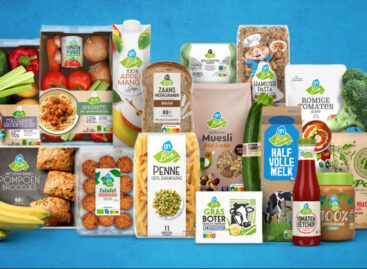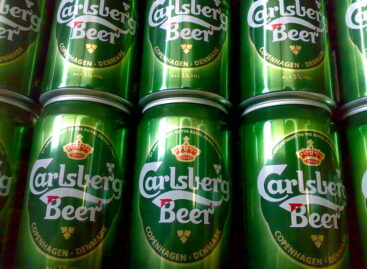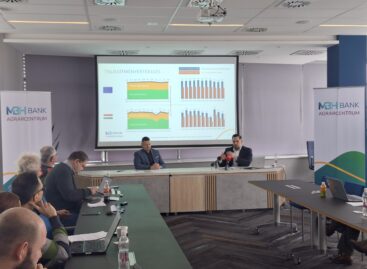Hot autumn after a hot summer?
It looks like agricultural producers are fed up with other people making all the profit. One by one, demonstrations have been held by producers of different fruits and the season of protest is far from being over yet. While a kilo of sour cherry costs over HUF 400 for consumers, farmers get only a third of this amount. Sour cherry for industrial use is purchased for only HUF 50-60 per kilo. According to experts from MAGOSZ, a minimum price should be introduced or retail chains should be subjected to quality inspections. They have filed a complaint with the Economic Competition Office (GVH), because they believe that buyers have established a price cartel. Producers of sour cherry are still convinced that merchants were playing for time in collaboration with processing enterprises. A price of HUF 120-140 had been anticipated by producers, on the basis of a forecast by FruitVeb, but the actual average price turned out to be much lower. However, the main reason for the problems encountered by producers was the lack of organised action. The black market, retail chains and industrial processing enterprises also played a part. Producers are planning a blockade against large buyers and processing enterprises, if the prices of other fruits still to be harvested will also be similarly low. The problems of the water melon sector also surfaced this summer. Substantial damage had been caused again by exporters of unripe products in the German, Polish and Czech markets. As a result, prices were depressed even further. In July, Auchan had begun selling water melons for HUF 49 per kilo, which lead to a successful demonstration by farmers. By the end of July, there was no longer excess supply in the market, but farmers turned against buyers, blockading their premises. Many people believe that these demonstrations lead by a socialist MP, would have been more useful, had they been directed against illegal merchants. According to György Simonka, mana-ging director of Simba Hungary Kft, a company which has also been under blockade, a price of HUF 30 per kilo has been demanded from him, while other buyers received continuous deliveries at a price of only HUF 20-23. He believes that farmers have lost a lot of money as a result of their protest campaign. József Karsai, the socialist MP disagrees with him. He denies the existence of any political motives for blockading Simba Hungary. According to his version, the company was subjected to the blockade, because it was selling water melon purchased for HUF 18, at a price of HUF 56. Other exporters received deliveries, because they had accepted the HUF 30 price. Attila Simon, secretary of Csányi Dinnye Védegylet, also believes that their protest campaign has been successful. In the opinion of Béla Mártonffy, managing director of FruitVeb, producers have failed to make the most of this season. Demand was high du-ring the summer, but producers were not delivering the right type and size. Giant water melons of 15-18 kilo size are far from ideal for most families. At the same time, illegal merchants account for one-third of the total market. Accor-ding to data from MAGOSZ, this year’s apple production will be around 400,000 tonnes. The quantity suitable for sale to consumers is expected to be 275–300,000 tonnes, while domestic demand is only 120,000 tonnes and export is insignificant. As a result, 160-180,000 tonnes of good quality apple will be sold for industrial use, at a depressed price of HUF 15-18 per kilo, which is calculated on the basis of the world market price of apple concentrate. Producers organised a blocked in August, to force buyers to accept a price of at least HUF 30 per kilo. Finally, a price of 9 cents has been agreed on instead of 12 cents (HUF 30), following intervention by the minister of agriculture. It is rumoured that this agreement has cost Agrana-Juice somewhere between EUR 1,5-2 million and is intended to force smaller, Hungarian processing enterprises out of the market. According to László Filep, managing director of Eszat Kft., they have been left out of the deal, like other Hungarian processing enterprises in spite of making a reasonable offer. The minister has offered to lobby against import quotas for Chines apple concentrate with his Polish counterpart. Grape producers are also uncertain about the quality and quantity of this year’s harvest. Prices offered by Buyers are 10-15 percent lower than last year. Cheap imports from Italy by major buyers have also pushed prices downwards. The biggest buyer in the Mátra region, Szőlőskert Zrt. has gone into liquidation, while Egri Szőlő-Bor Szövetkezet has also been in trouble for two years. 100,000 hectolitres of wine will probably have to be sold elsewhere. German farmers are planning a new blockade against buyers of milk, demanding a price of 43 cents per litre. Hungarian farmers threaten to follow their example and organise a blockade against major retail chains, if retailers refuse to raise their prices to the level regarded as acceptable by the farmers. As production quotas were raised by 2 percent last year, quantities available for import at low prices have also increased. On several occasions, UHT milk has been sold at a consumer price of HUF 129 by retail chains. Farmers are worried by the prospect of retail chains attempting to cut average consumer price which is substantially higher at the moment. Negotiations are to begin soon between the Dairy Pro-duct Council and major retail chains. However, according to the chairman of the National Retail Association, what the farmers are demanding is equal to a price cartel in practice.
Related news
Related news
Albert Heijn Targets 10% Organic Own-Brand Share By 2030
🎧 Hallgasd a cikket: Lejátszás Szünet Folytatás Leállítás Nyelv: Auto…
Read more >Carlsberg exits Tibet joint venture
🎧 Hallgasd a cikket: Lejátszás Szünet Folytatás Leállítás Nyelv: Auto…
Read more >MBH AgrárTrend Index: Hungarian agriculture faces significant changes in 2026
🎧 Hallgasd a cikket: Lejátszás Szünet Folytatás Leállítás Nyelv: Auto…
Read more >




